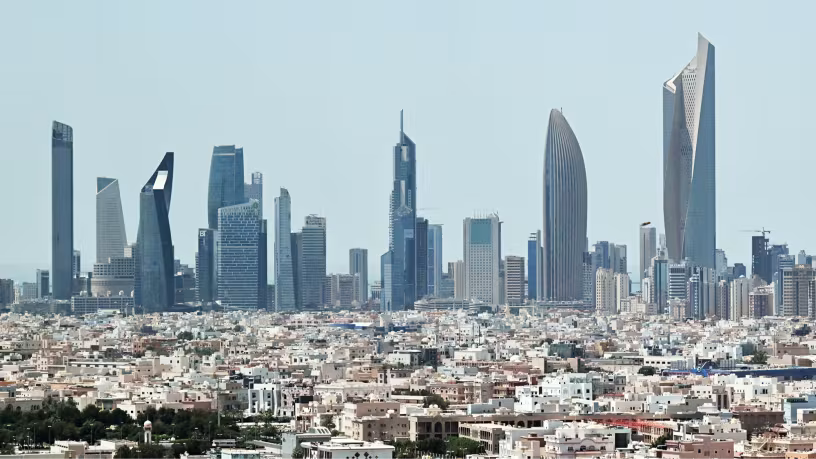Kuwait's Financialisation Speedrun: Towards Gulf Shift with New Reforms
The new initiatives towards financialisation ensure the consolidation of the financial system and a stringent type of financial oversight.
Led by Emir Sheikh Mishal Al-Ahmad Al-Jaber Al-Sabah, Kuwait has endured sweeping transformations in both its political and financial landscapes. Efforts to centralise power in recent years culminated in the dissolution of the National Assembly of Kuwait, supported by the country’s implementation of various financial regulations purportedly aimed at combating money laundering and terrorism financing. The most recent of these measures are an inaugural mortgage law proposal and a currency exchange crackdown, signalling Kuwait's attempt to accelerate its move towards financialisation. The aim is to align with its Gulf neighbours' burgeoning finance sectors. However, the urgency of the push on exchanges is partly related to the Kuwaiti people’s financial efforts for Palestine amid the war on Gaza.
Suspending the Gulf’s Only Democracy
A recent effort to consolidate power has been unfolding in Kuwait, beginning with the Emir Sheikh’s decision to dissolve the National Assembly in 2024, followed by the suspension of seven articles of the constitution. The suspension was described as a temporary transitional measure, aimed at 'reevaluating the democratic process' in the Gulf nation, with a duration of up to four years. During this period, the Emir and his appointed cabinet have been able to sideline opposition, effectively centralising authority. The consolidation of power has been furthered through the arrest of opposition figures and the revocation of citizenships; as of this month, nearly a year later, the number of affected individuals is estimated at 42,000.
The Financialisation of the Gulf
Kuwait has been tightening its financial regulations over the past couple of years. Various measures include banning cash car sales and requiring proof of bank payments in real estate transactions. Some of these measures are said to fall under the umbrella of combating 'money laundering' and 'terrorism financing.' The redesign of the Kuwaiti dinar is one method adopted by the Central Bank of Kuwait to 'flush out dirty funds,' following a critical report by the Financial Action Task Force (FATF). The report suggested this move as part of efforts to prevent Kuwait’s inclusion on the international body’s 'grey list,' which serves as a warning before a potential descent into the blacklist, with sanctions and various trade and transaction restrictions as possible consequences.
One of the most recent measures concerns the suspension of currency exchange offices. The Ministry of Commerce has given exchange offices until 31 March to regularise their status in accordance with the Central Bank of Kuwait’s requirements. This move is a precautionary measure aimed at stabilising the currency against potential volatility, which is increasingly important as the US dollar - to which the Kuwaiti dinar is partly pegged- is expected to drop amid fears of a recession.
The recent proposal for a mortgage law also fits within this context. The new mortgage law allows commercial banks to offer home loans. Although the details have not been publicised, it is expected to shift lending from the Kuwait Credit Bank, which has historically been the primary source but has proven insufficient, to commercial banks. It also aims to increase loan terms and lending amounts. The proposal is being regarded as a ‘game changer’ by local banking leaders and Fitch ratings officials, as it would give birth to a Kuwaiti mortgage market, putting it on par with Saudi Arabia and the Emirates' more mature markets.
Dubai’s 2008 Mortgage Law and Saudi Arabia’s 2012 Real Estate Mortgage Law have set the precedent for this shift. Mortgages are part of a regional trend in the GCC to financialise the economy through the real estate sector, which has historically relied on government housing subsidies and more modest lending amounts. Generating additional liquidity for banks and enabling them to expand lending helps diversify away from dependence on oil.
Gaza as a Catalyst
Nevertheless, this expansion comes with great costs. With these reforms, banks will assume a more prominent role, replacing exchange offices as key financial institutions. The end goal is financialisation, an economic destination marked by individuals becoming more vulnerable to financial pressures as they become increasingly preoccupied with managing debt above all else. This heightened focus on debt can lead to greater insecurity and, ultimately, make people more susceptible to economic oppression.
The crackdown on finances can be attributed to the war in Gaza, as Kuwaitis have been key donors to humanitarian aid initiatives in the Strip. The new initiatives towards financialisation provide the type of banking oversight required to effectively control such behaviour. Moreover, this signals a shift towards normalisation and a more assertive alignment with the West—an approach previously adopted by Saudi Arabia when it cracked down on the collection of donations for Gaza to comply with Western financial sanctions and the broader normalisation agenda.



